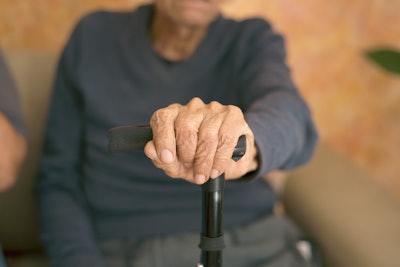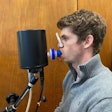
Frailty raises the risk of lung exacerbations and death, even in smokers with preserved lung function. That’s according to research from Brigham and Women’s Hospital and Harvard Medical School.
The study, "Frailty Associates With Respiratory Exacerbations and Mortality in the COPDGene Cohort," was published in Aging. COPDGene is a cohort study of individuals aged 45–80 years with a minimum 10-pack-per-year smoking history.
The researchers defined frailty as “a syndrome of decreased functional reserve and increased vulnerability to stressors.” Frailty has been associated with advanced age, chronic diseases like COPD and increased risk of disability and death.
The study used the Fried Frailty Phenotype (FFP) to classify more than 2,600 study participants as frail, prefrail or robust based on five components: shrinking, weakness, slowness, low activity level and fatigue. The participants also had a history of heavy smoking, although many of them showed no signs of lung damage on standard tests.
The participants were tracked over a period of three years, and researchers looked at how often they experienced respiratory attacks, such as severe coughing or breathlessness, and the survival rate during that period.
Study results showed that people who were deemed frail were three to five times more likely to develop serious or frequent respiratory attacks compared to those who were robust, according to the news release. This was even true of those who did not have chronic lung disease.
Researchers said this shows that simple frailty checks could help identify early health problems, allowing for timely interventions that could prevent hospitalizations and save lives. They suggest a frailty screening could be a valuable tool in reducing respiratory disease and improving outcomes for aging adults.






















